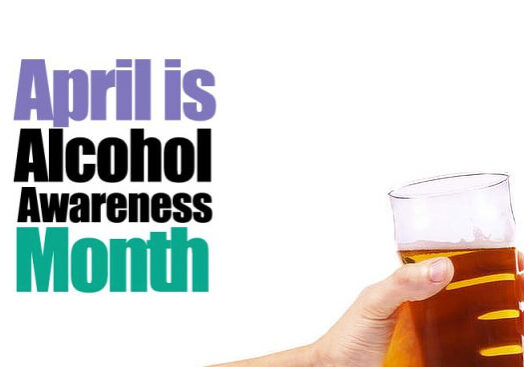Alcohol Awareness Month: For the Health of It

 April is Alcohol Awareness Month. Founded and sponsored by the National Council on Alcoholism and Drug Dependence, Inc. (NCADD), this year’s theme is: “For the Health of It: Early Education on Alcoholism and Addiction.”
April is Alcohol Awareness Month. Founded and sponsored by the National Council on Alcoholism and Drug Dependence, Inc. (NCADD), this year’s theme is: “For the Health of It: Early Education on Alcoholism and Addiction.”
No other substance is more widely used and abused by America’s youth than alcohol, making alcoholism and alcohol-related problems the number one public health problem in the United States. Despite the legal drinking age of 21, high school students still consume 31 million gallons of wine coolers and 102 million gallons of beer each year., NCADD reported.
If you think your child is drinking just to “have a good time,” think again: many kids drink alone because they are bored or depressed. “Underage drinking is a complex issue,” says Andrew Pucher, President and Chief Executive Officer of NCADD, “one that can only be solved through a sustained and cooperative effort. As a nation, we need to wake up to the reality that for some, alcoholism and addiction develop at a young age and that intervention, treatment, and recovery support are essential for them and their families.”
According to the Substance Abuse and Mental Health Services Association (SAMHSA,) some of the signs your teen is abusing alcohol can include:
- Mood changes: flare-ups of temper, irritability, and defensiveness
- School problems: poor attendance, low grades, and/or recent disciplinary action
- Rebellion against family rules
- Friend changes: switching friends and a reluctance to have you get to know the new friends
- A “nothing matters” attitude: sloppy appearance, a lack of involvement in former interests, and general low energy
- Alcohol presence: finding it in your child’s room or backpack or smelling alcohol on his or her breath.
- Physical or mental problems: memory lapses, poor concentration, bloodshot eyes, lack of coordination, or slurred speechAlthough these signs may indicate alcohol or substance abuse problems, some also reflect normal teenage growing pains. Too Smart To Start experts believe that a drinking problem is more likely if you notice several of these signs at the same time if they occur suddenly and if some of them are extreme in nature. If you are concerned about a friend or family member, call Breathe Life Healing Centers. Our alcohol rehab program is specifically designed to heal young adults and their families who need help with alcohol addiction. If you believe your teen needs help, start with the SAMHSA website, you will find a comprehensive guide to start your family on the road to wellness.*Some parts reprinted with permission from NCADD
To Inquire About Breathe Life Healing Centers, Please Call
Our Helpline 24/7 at (800) 929-5904
Get Help Now
Send us a message and a member of our team will be in touch shortly.
